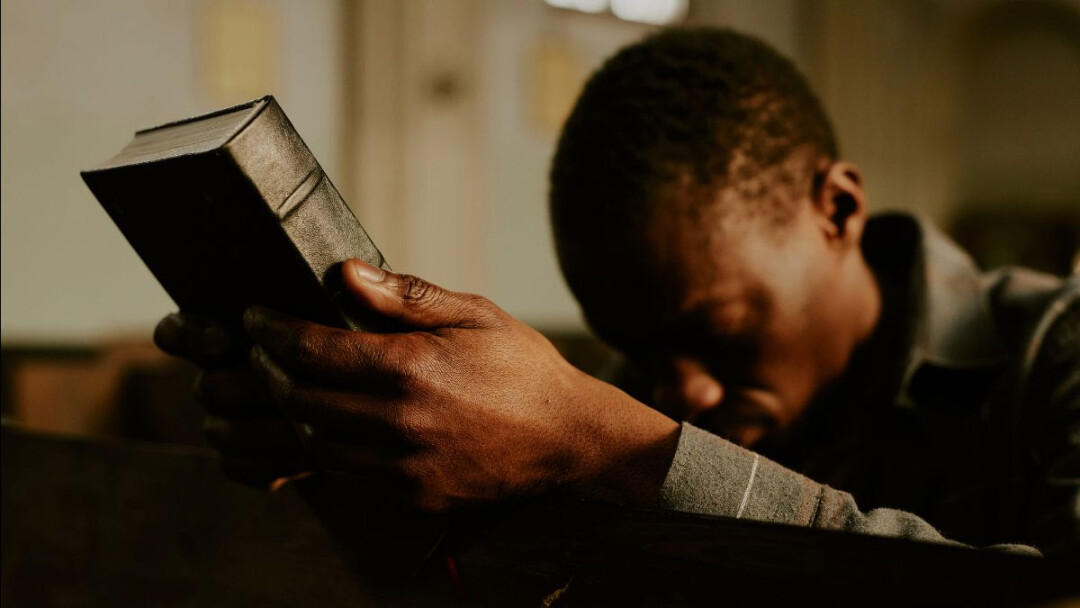|
Luke 16:19–31 (ESV)
19 “There was a rich man who was clothed in purple and fine linen and who feasted sumptuously every day. 20 And at his gate was laid a poor man named Lazarus, covered with sores, 21 who desired to be fed with what fell from the rich man’s table. Moreover, even the dogs came and licked his sores. 22 The poor man died and was carried by the angels to Abraham’s side. The rich man also died and was buried, 23 and in Hades, being in torment, he lifted up his eyes and saw Abraham far off and Lazarus at his side. 24 And he called out, ‘Father Abraham, have mercy on me, and send Lazarus to dip the end of his finger in water and cool my tongue, for I am in anguish in this flame.’ 25 But Abraham said, ‘Child, remember that you in your lifetime received your good things, and Lazarus in like manner bad things; but now he is comforted here, and you are in anguish. 26 And besides all this, between us and you a great chasm has been fixed, in order that those who would pass from here to you may not be able, and none may cross from there to us.’ 27 And he said, ‘Then I beg you, father, to send him to my father’s house— 28 for I have five brothers—so that he may warn them, lest they also come into this place of torment.’ 29 But Abraham said, ‘They have Moses and the Prophets; let them hear them.’ 30 And he said, ‘No, father Abraham, but if someone goes to them from the dead, they will repent.’ 31 He said to him, ‘If they do not hear Moses and the Prophets, neither will they be convinced if someone should rise from the dead.’ ”
I’m sure you’ve seen them. The person standing on the street corner, holding up a sign to ask for money. The person sleeping under a tree, on a park bench, in a box in an alleyway, or in a tent in the bushes. You might even have had an encounter in a parking lot with a person asking for money or food. Sometimes you feel stirred to help, even though you’re uncomfortable giving money; you may purchase some food for them instead. At other times, you might feel frustrated and think the beggar is scamming people and that there are places for them to go and get help.
Regardless, any encounter with a person in these circumstances challenges our thinking and certainly stretches our comfort zones.
As we read this passage, certain folks come to mind for us, and we find ourselves unsettled in our thoughts.
Although the passage isn’t identified expressly as a parable, we must understand it that way. It’s too easy to see this as a moral story about riches and poverty even though it could be taken that way as it parallels many similar stories in ancient times where fortunes are reversed in the afterlife; the rich become poor, and the poor rich, but even then, those stories are about deeds and about the reward one receives for doing good or doing evil in their lifetime.
This, however, is a parable, and we must soak in the picture language which reveals something about Jesus, His work, and our relationship with Him.
The key to understanding the parable’s picture language is in the last two verses, and the point of it all is that one future depends on repentance. That’s what Jesus has been talking about and urging people to do for the last couple of chapters; enter through the narrow gate, come to the table, change your ways, come home, come into the party, and celebrate.
In this parable, the rich man fails to repent at every point. He complains to Father Abraham rather than repent. He expects Lazarus to serve him with water and then to be an errand boy to his brothers rather than repent for the way he ignored Lazarus. Even his plea for his brothers is a rejection of God’s will, as Moses and the Prophets are not good enough, and his whole effort is one of avoidance of Hades rather than bearing fruit in keeping with repentance (Luke 3:8).
“What he [the rich man] wants from religion, for himself and his brothers, is not a religion that changes his actions, but one that spares him from the consequences of his actions. During his life he failed to heed the teaching of ‘Moses and the Prophets,’ and in Hades it is too late to heed them. The results of his choices are final.” James Edwards.
What Luke has made plain again and again is that Jesus, in His work and teaching, is fulfilling the law and the prophets. God’s kingdom is breaking into the world, and all are invited and even urged to come if they would just turn from their wicked, self-absorbed ways, repent, and be reconciled to the Lord.
But if not, not even a visit from someone who has risen from the dead will convince them.
Good stuff, but how are we to respond? It’s clear that this parable is all about repentance and for us to entrust our lives to Jesus and follow wherever He leads us, which means that you not only love God with your whole being but also your neighbor as yourself.
So, who then is your neighbor, and how might you compassionately, gently, and wisely love them in Jesus’ name?
God bless you and know that you are constantly in my prayers!
Scott
|

